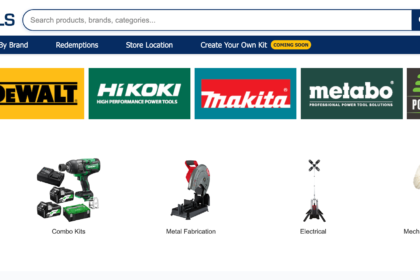Moving across a significant distance—whether to another state or clear across the country—is a major life event that requires careful planning, attention to detail, and a trusted support system. One of the most critical elements of a successful long-distance move is selecting the right moving company. Without the right expertise and logistics management, a move can quickly become overwhelming, costly, and stressful.
That’s where professional Long distance movers come in. These companies specialize in managing the unique challenges of cross-state and nationwide relocations, from packing and loading to transportation, insurance, and delivery. In this comprehensive guide, we’ll break down everything you need to know about hiring long-distance movers, what to expect during the process, and how to ensure your move is efficient, cost-effective, and worry-free.
What Are Long Distance Movers?
Long-distance movers are moving companies that specialize in transporting goods over large geographical areas—usually over 100 miles or across state lines. These movers differ from local moving companies not only in the distance covered but also in the logistics, regulations, and planning involved.
Their services often include:
- Full-service packing and unpacking
- Loading and unloading
- Long-haul transportation
- Temporary or long-term storage
- Real-time tracking and status updates
- Assistance with documentation and insurance
Because of the distances involved, moves typically take multiple days and require extensive planning and coordination, particularly for households or businesses with large inventories or fragile items.
Key Benefits of Hiring Long Distance Movers
Opting for professional movers rather than handling a long-distance relocation on your own comes with several major advantages:
1. Efficiency and Experience
Long-distance movers are trained in optimizing every aspect of the move—from safe packing to efficient loading techniques. Their experience helps avoid delays and damage.
2. Time Savings
Coordinating a long-haul move involves scheduling, route planning, and logistics that can consume significant time. A professional team streamlines this process so you can focus on other priorities.
3. Protection of Belongings
Reputable movers use high-quality packing materials, proper loading equipment, and GPS tracking to ensure your items arrive in the same condition they left.
4. Licensed and Insured Services
Professional movers carry federal licenses (e.g., USDOT) and offer insurance options that protect your items during transit.
Services Offered by Long Distance Movers
Most full-service long-distance movers offer a range of services that can be tailored to your specific needs:
• Packing and Unpacking
Professionals pack your household items securely and unpack them at your destination. This service reduces damage risk and saves time.
• Furniture Disassembly and Assembly
Movers can disassemble bulky furniture at the origin and reassemble it at your new home.
• Custom Crating for Fragile Items
High-value or delicate items like artwork or electronics may be crated to prevent breakage.
• Storage Solutions
Some companies offer short- or long-term storage for customers whose new home isn’t immediately available.
• Auto Transport
If you’re relocating across a long distance and can’t drive your vehicle, many moving companies offer car shipping services as well.
How to Choose the Right Long Distance Movers
Choosing the right movers is one of the most important parts of a successful relocation. Here’s what to evaluate when selecting your moving company:
1. Licensing and Credentials
Ensure the company is licensed through the U.S. Department of Transportation (USDOT). You can check their status via the Federal Motor Carrier Safety Administration (FMCSA) website.
2. Insurance and Liability Coverage
Look for companies that offer multiple insurance options, including full value protection for your belongings during transit.
3. Transparent Pricing
A reputable mover will provide a detailed, written estimate after conducting an in-home or virtual survey. Avoid companies that offer vague quotes or charge large upfront deposits.
4. Reputation and Reviews
Search for reviews on trusted platforms like Google, Yelp, and Better Business Bureau (BBB). Consistent positive reviews are a good indicator of reliability and customer satisfaction.
5. Availability and Flexibility
Make sure the mover can accommodate your schedule, especially if you’re relocating during peak season or under tight timelines.
What to Expect During a Long-Distance Move
The process typically follows these steps:
1. Initial Consultation
You’ll speak with a representative to discuss your inventory, timeline, and moving requirements. This may include a home or virtual survey to provide an accurate estimate.
2. Quotation and Agreement
Once all details are finalized, you’ll receive a binding or non-binding quote. After signing the contract, your move is officially scheduled.
3. Packing and Loading
Depending on your service level, the movers will arrive to pack your belongings or begin loading pre-packed boxes. They’ll secure items in the truck and prepare everything for safe transport.
4. Transportation
Your belongings will be transported to your new location. Long-distance movers use tracking tools to update you on the status of your shipment.
5. Delivery and Unloading
At your new home, the team will unload your items, place them in the rooms you specify, and assist with unpacking (if requested).
Cost Factors for Long Distance Moving
Pricing for long-distance moving is based on several key factors:
- Distance of the move
- Weight or volume of items
- Labor required
- Time of year (peak season costs more)
- Additional services (e.g., packing, storage, auto transport)
Always request at least three quotes from different companies to compare pricing and services. Look for a “binding estimate” to lock in your price and avoid surprise fees.
How to Prepare for a Long Distance Move
Preparation is essential to reduce stress and avoid mistakes. Here’s a checklist:
✓ Declutter Early
Sort through your belongings and donate, sell, or discard items you don’t need.
✓ Label Everything Clearly
Use color-coded labels or numbering systems to organize boxes by room or category.
✓ Create an Essentials Box
Pack items like toiletries, important documents, medications, and a few days’ worth of clothes separately.
✓ Back Up Important Files
If you’re moving computers or hard drives, make sure all data is backed up in case of loss or damage.
✓ Confirm Details in Writing
Make sure your contract includes the move date, insurance coverage, delivery window, and all service fees.
Red Flags to Watch Out For
Unfortunately, not all moving companies operate ethically. Here are warning signs to avoid:
- Unusually low estimates that seem too good to be true
- No USDOT number or proof of license
- Large cash deposits required upfront
- Lack of written contracts or vague terms
- No physical office address or generic contact info
Stick with verified, licensed, and insured movers to protect yourself and your belongings.
Final Thoughts
A long-distance move is a significant life change, and having a professional team on your side can make all the difference. Long distance movers bring expertise, peace of mind, and logistical support that allow you to focus on starting your new chapter.
By thoroughly vetting your movers, understanding your service options, and preparing in advance, you can transform what might be a stressful experience into a smooth, successful journey.
Whether you’re moving a few hundred miles or across the country, take the time to choose a trusted team of Long Distance Movers who can handle every detail with care and precision.








